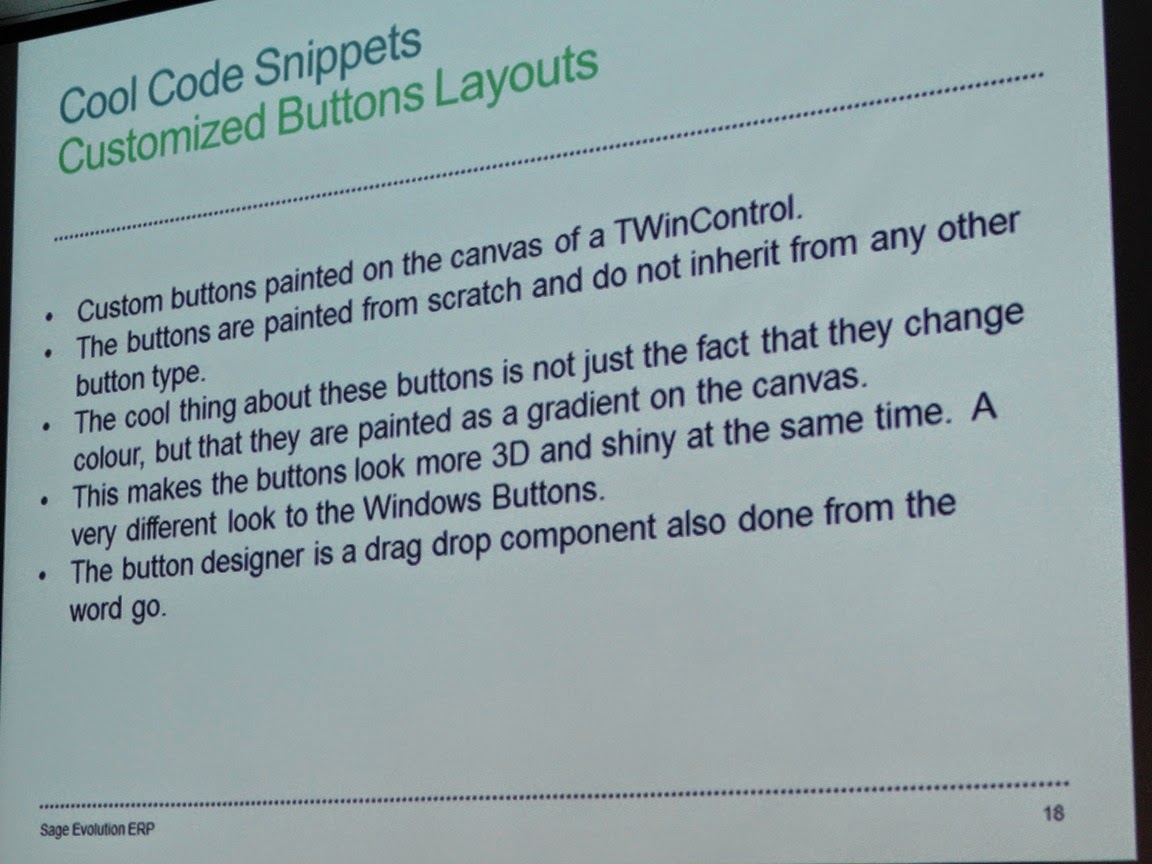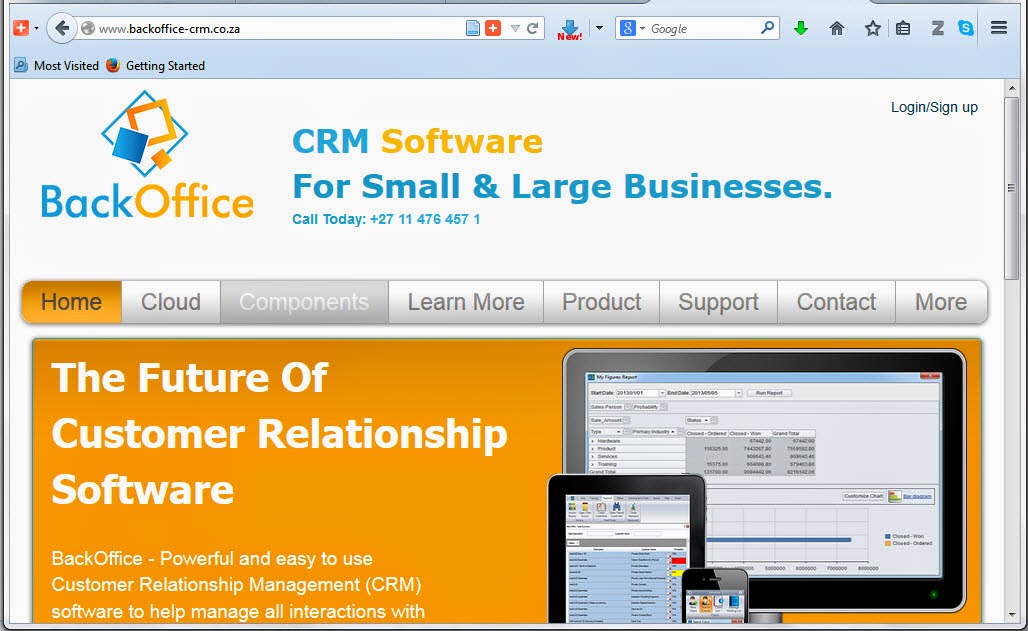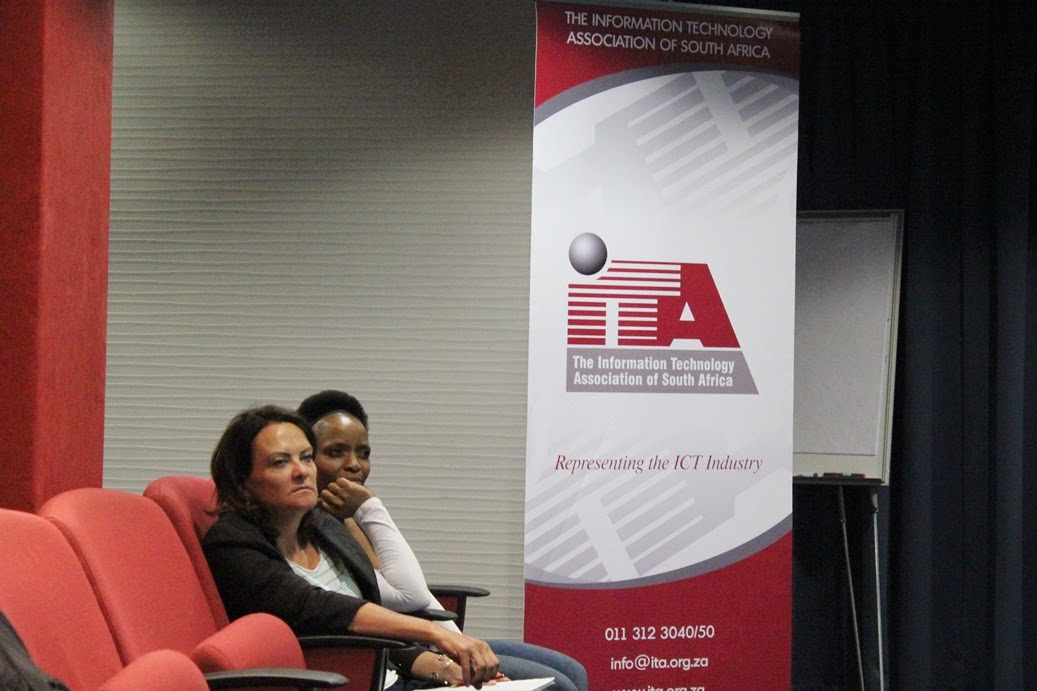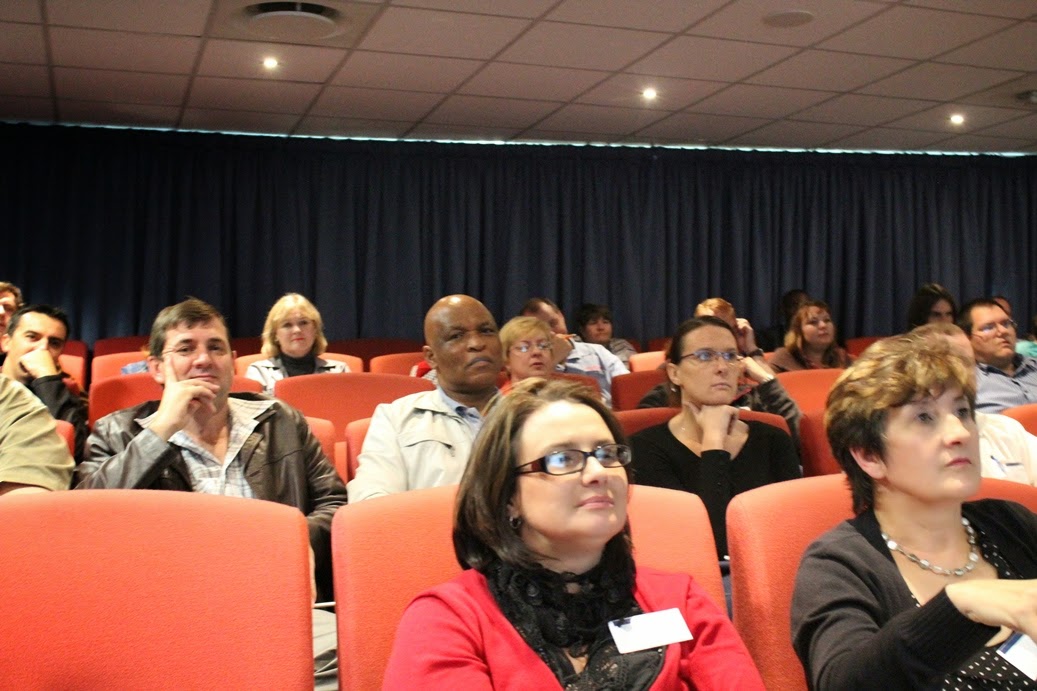Delphi allows for the easy consumption of web services as part of an application.
The following tutorial by Aubrey Khoza, highlights such an example.
The example also incorporates a stringgrid and text files.
The use of web services is not part of the CAPS but learners are welcome to include the concept and technique as part of their PAT's. It highlights some of the 'netcentric' capabilities of Delphi.
Below are the links for the applicable downloads
PDF_of_PPT_WebServices
PDF_Document_Withdescriptions
ZipFileWithApplicationD2010
Thank you Aubrey for all your kind efforts and commitment to IT education in secondary schools!
Tuesday, May 20, 2014
Working with DB's ADO - Sea Side Funrun (Video Reload)
After some requests and a personal review of the videos posted relating to the following post:
http://www.sadelphiitschools.blogspot.com/2013/05/sea-side-fun-run-db-driven-application.html
I have decided to reload the videos for normal download. The quality of the videos is better. The content presented, is very helpful for all learners who endevour their PAT's.
Happy watching:
DBFunRun_Video_1
DBFunRun_Video_2
DBFunRun_Video_3
DBFunRun_Video_4
DBFunRun_Video_5
Happy Coding!
http://www.sadelphiitschools.blogspot.com/2013/05/sea-side-fun-run-db-driven-application.html
I have decided to reload the videos for normal download. The quality of the videos is better. The content presented, is very helpful for all learners who endevour their PAT's.
Happy watching:
DBFunRun_Video_1
DBFunRun_Video_2
DBFunRun_Video_3
DBFunRun_Video_4
DBFunRun_Video_5
Happy Coding!
Thursday, May 15, 2014
SAGE at EOH 2014 SADelphiITSchools Event
A wonderful presentation delivered André Joubert of SAGE - ERP during the event of the 10th of May.
Here is André's slides and handouts:
PDF_of_PTT_Slides
Code_SnipetsPDF_Doc
Thanks again for SAGE's involvement!
The Delphi schools are surely on the right track :-)
Here is André's slides and handouts:
PDF_of_PTT_Slides
Code_SnipetsPDF_Doc
Thanks again for SAGE's involvement!
The Delphi schools are surely on the right track :-)
Wednesday, May 14, 2014
2nd DelphiITSchools Event at EOH
This past Saturday 10th of May 2014, saw the 2nd
annual presentation of the SADelphiITSchools workshop being held at EOH in
Bedfordview, Gauteng.
More than 58 teachers, subject advisors and other
delegates which also included academia from 2 universities, senior education
students and industry partners took part in the successful presentation of the
day.
Five provinces were represented namely: Gauteng, NorthWest, Limpopo, Mpumalanga, and the Free State. The event was
kindly sponsored and orchestrated by EOH, and throughout the day Nthabeleng
Monyane, Account manager, part of the Embarcadero Sales division played host to
all eager and impressed delegates.
Dillon Gray of EOH shared valuable information relating to a
mobile project with new Bluetooth technology which is soon to be released in
shopping malls in SA, parts of which were developed in Delphi.
Andre Joubert of SAGE Technologies gave a very interesting
and thought provoking presentation on the power and stability of Delphi as a programming
language over the years. Andre shared some mind blowing statistics on the code magnitude of the code base of the SAGE ERP
system which is used across the globe, which include countries as far as
Australia and New Zealand.
Andre reiterated Delphi’s industry relevance, power and stability and
supported the notion of Delphi as a training language. The importance of mobile
service provisions and the ease in which Embarcadero RAD Studio presents
developers with the option to rapidly develop apps for multiple platforms on
one codebase was also highlighted.
Andre shared some thoughts on some important basic concepts which
students should master, as part of a basic curriculum. It was wonderful to see
that the current CAPS document content, with specific reference to the DB
related and OOP concepts presented are indeed in line with some entry
expectations.
SAGE treated each delegate with a big chocolate which
further sweetened the day.
Another company system was presented i.e. BackOffice of Intensive
Software Solutions (software-solutions.co.za). The BackOffice CRM software tool
is completely written in Delphi.
The workshop was also the starting point to discuss a later
IT Schools PAT project competition which will be hosted by EOH in October this
year and supported by the ITA.
Subject advisors of Gauteng will be responsible
for the marketing and the competition will be open to all learners of all
provinces.
It was wonderful to have the Information Technology Association
of South Africa also present. Mannini of the ITA, shared the vision and purpose
of the ITA to all interested and it was encouraging to see that EOH is
also a member. Some companies which form part of the ITA also uses Embarcadero
products.
After the industry presentations Bertie Buitendag and Heimo
Jeske of TUT presented some concepts relating to the IT CAPS curriculum.
Bertie Buitendag presented some of the new capabilities of
the XE6 product as well as some important new perspectives on enhancements to
Delphi and C++ Builder. Some of these thoughts included the rapid growth of
mobile technologies, and the important benefits of native code as well as
enhancements to the Delphi language, such as Automatic Reference Counting (an
alternate approach to ‘garbage collection’).
The theme of the rest of the presentations was inspired by a
previous CompStudies posting relating to some thoughts presented in 2009 (pre
CAPS) of what was envisaged of learners enrolled for IT as a subject at high
school. Interestingly enough the post was also consulted during the writing of
the CAPS. The suggested theme is not only interesting but also spreads across
multiple IT disciplines including web based i.e. ‘netcentric’ components, DB
design, OOP concepts and communication with other tools and software such as
Excel. The theme also provisions itself to some nice possible ideas for
including mobile applications, and connectivity to hardware. It was a wonderful
opportunity to showcase how native Delphi code could be implemented with ease
to fulfil the various requirements of the theme.
Firstly the ease of DB connectivity was highlighted and the
use of ClientDatasets and newer technologies such as FireDAC was also
mentioned.
One of the ideas presented in the CAPS is the use of textfiles
as a source of data. As part of the CompStudies Cycle Challenge sample
application, data from a textfile downloaded from a list was used as a source
to harvest some information. The design and use of a back-end class to provide
some functionality relating to ‘Participants’ was also presented. Methods and
techniques in the application of SQL to manage DB-related transactions (also
part of the CAPS syllabus) as also highlighted and the sample application
showed how a disconnected DB (source of data) could be managed in memory before
being posted/applied to the DB.
Delegates were also stunned by the wonderful effects VCL
styling could have on an application.
Another prerequisite of the theme was the requirement of the
system to be able to communicate with other software packages. Heimo Jeske
presented some wonderful techniques and approaches in Delphi which could be
used to accomplish this. A wonderful piece of code was presented where an
instance of Excel was opened, data written to a worksheet obtained from a SQL
query and subsequently rendered onto a graph on Excel. This piece of code
amazed delegates, and the simple ease of the Delphi language to interact with
other software was reiterated.
One of the strong points of the Delphi programming language,
is the fact that Delphi hides a lot of the intrinsic complexities to enable
programmers to create wonderful usable applications, on various levels and
platforms. Another wonderful aspect of the language is the provision of tools
to enable serious programmers to delve and explore deeper.
Heimo Jeske also presented some interesting program snippets
and ideas which could be used by learners to enhance the functionality of their
PAT’s (Practical Assessment Tasks)
Aubrey Khoza of TUT prepared a wonderful tutorial on the use
of web services as part of a Delphi Application. Attendees were amazed on how
easy Delphi allows a user to create code which consumes a web service for use
as part of the application. His application retrieved weather forecast data.
In the subsequent DB themed application (Compstudies Cycle
Challenge) Bertie Buitendag presented some code which could be used to generate
some realistic data to populate a DB. The concepts of a connected and
disconnected dataset was also discussed. The use of a back-end class to provide
some validation functionality was also presented.
One of the last prerequisites of the topic/theme was the requirement
that the learners should be able to develop an application which allow some or
other web interface. Here the power and creativity of Delphi’s IntraWeb components
were demonstrated. And a web application which allow a user to look-up his/her
race time was presented. The delegates were amazed how easy simple Delphi code
could be used (All code used was indeed within the scope of the CAPS) to render
a web based application. The wonderful functionality of the ClientDataset
component was again illuminated.
The last two sessions of the presentation presented some of
the mobile and cross-platform development capabilities of FireMonkey. The delegates
were stunned to see how easy it is to deploy an application on different
platforms, without changing a single line of code. Bertie Buitendag started his involvement with
teacher and learner based Delphi Training in 2003. One of the first programs he
has written in that time was a simple click and kill game named WillemWurm. It
was wonderful to showcase the transformation of this simple game into a
FireMonkey application, which was then deployed to an Android device which ran
on both the Windows 32 platform as well as Android. Another highlight was that
the APK of the game was shared via DropBox to one of the delegates who installed
it to his device and subsequently ran it, without any problems.
The ease in which Delphi allows mobile development, will not only be a great catalyst and encouragement for future learners to do IT, but it also as the potential to inject lots of fun and learning into the subject. This will again be showcased at an event on the 7th of June, where international speakers of Embarcadero will showcase RAD studio to learners and teachers. [More information in a subsequent post]
The day was a tremendous success. The preparation process, presentation, and metacognition process allowed the main presenter to reflect on some of the negative comments posted by many on Blogs, News and mailing groups over the last few years, with specific reference to last year. The only conclusion is that many of the negative posts and statements revolve around misinformation and skewed perceptions.
For Bertie Buitendag, Delphi which uses Object Pascal is and will always be a great tool to encourage learners to explore the wonderful world of programming. If you are really against proprietary software, well then there is Lazarus, which also use Object Pascal.
Bertie could not but wonder, how easy it would have been for some of these concepts be presented or explained in other programming languages. Maybe the harse critics would one day attend a session like this, and realise the value. It reiterated the thought that, just because you need a lot of overhead and knowledge to get something working in your programming environment, does not mean we that love and use Delphi need to as well.
Thank you EOH, ITA, SAGE, TUT and Embarcadero, and last of all my colleagues and wonderful friends: Heimo, Christo, Aubrey and to all other delegates and teachers who came from far to attended the day and made it SUPER!!
GO RAD Studio. Go Embarcadero. VIVA all IT teachers in SA VIVA!!!
Subscribe to:
Comments (Atom)






























































